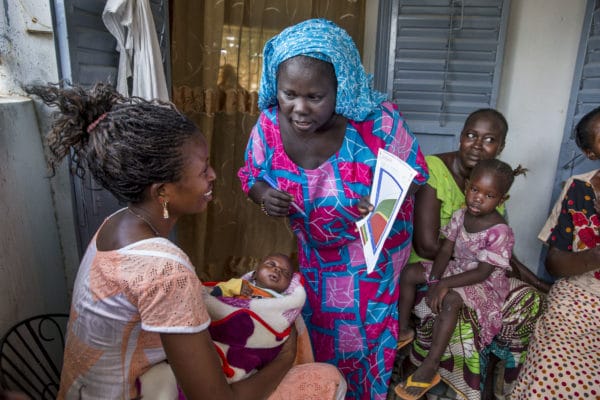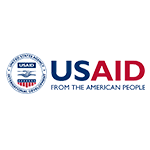Increasing Exclusive Breastfeeding to Support Mothers and Infants in the DRC
HIGHLIGHTS
- Infants who are exclusively breastfed for six months are nearly three times more likely to survive than infants who are not. But nearly half of infants in the Democratic Republic of Congo (DRC) receive solid food or water before they are 6 months old.
- We developed solutions that support families to achieve six months of exclusive breastfeeding by resetting social expectations, building self-efficacy, and helping mothers to chart a clear path forward to meet this milestone.
- Increasing the number of infants who are exclusively breastfed has the potential to reduce infant mortality and strengthen the foundation on which lifelong health is built.
The Challenge
Exclusive breastfeeding (EBF) for six months not only prevents diarrhea, malnutrition, and other life-threatening illnesses but is associated with better long-term health outcomes for both infants and mothers. However, in the southeastern Lualaba province of the Democratic Republic of Congo (DRC), most mothers introduce water and porridge after around three months. While some mothers introduce food because they return to work and must be away from their infants for long periods of time, the majority of mothers are able to continue EBF but fail to do so. Even among mothers who say they know about the benefits of EBF and want to exclusively breastfeed, very few continue for the full six months.
Our Approach
Working through the USAID-funded Breakthrough ACTION project and in collaboration with local government and non-profit partners, we conducted qualitative field research with mothers, fathers, community leaders, facility-based providers, and community health workers to understand why so few families complete six months of EBF.
We found that health workers don’t always relay key messages about EBF in a memorable way or at the right moment to support mothers in forming a strong intention to exclusively breastfeed. In addition, at 3 months old, infants begin to go through developmental changes, which can lead mothers to think that breast milk is no longer enough to meet their infant’s needs. Husbands who notice these changes are also likely to interpret them in this way and to pressure mothers to offer other foods.
We designed a solution set that works through multiple touchpoints. The resulting solutions include:
- Equipping community-health workers to coach mothers in planning for EBF success.
- Supplying community leaders with an approach for celebrating families that achieve EBF.
- Supporting facility-based health workers to deliver clear, achievable messages about EBF during busy consultations.
- Showing that EBF is accessible to “all mothers.”
Results
The solution set was designed for implementation within the Breakthrough ACTION project’s VIVA campaign.
Takeaway
The World Health Organization (WHO) estimates that increasing rates of exclusive breastfeeding could save more than 800,000 lives every year. Despite these extraordinary benefits, nearly two out of three infants around the world are not exclusively breastfed for six months—a number that has held firm for the last two decades. Our solutions aim to harness new ways of supporting families to achieve six months of exclusive breastfeeding by helping families absorb clear, simple messages about what to do and why and re-imagining what they are able to do to help their children grow.
Interested in our work applying behavioral science to global health? Email gh@ideas42.org or tweet at @ideas42 to join the conversation.
Partners









